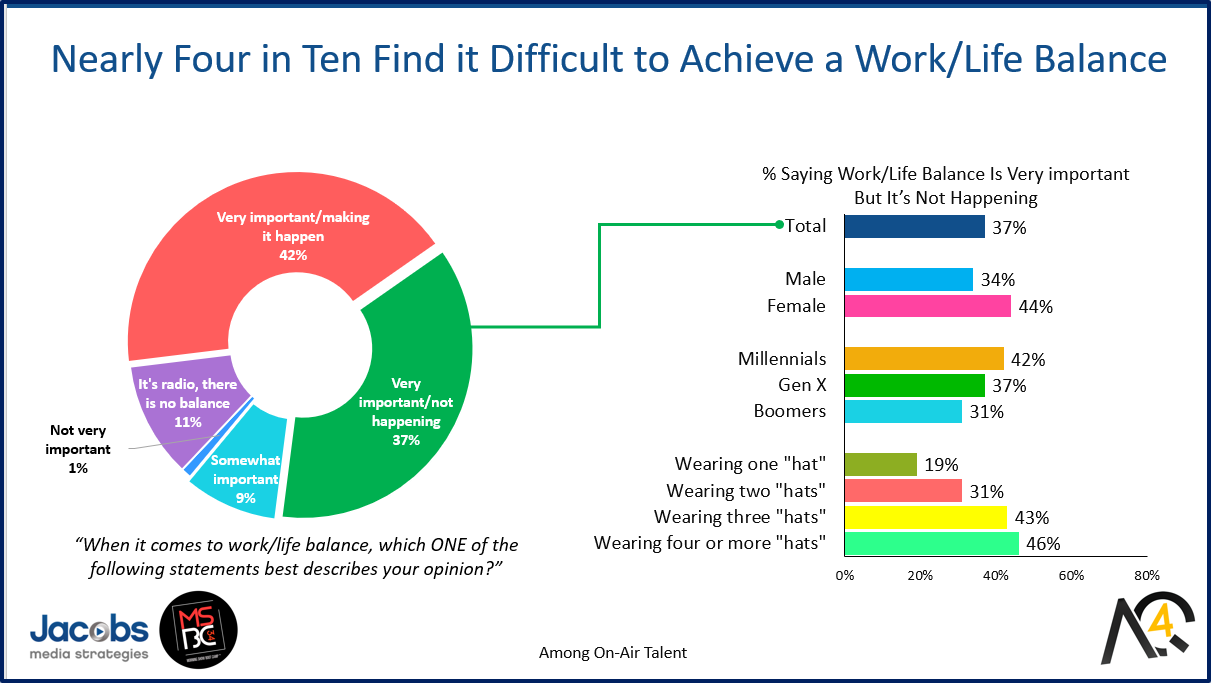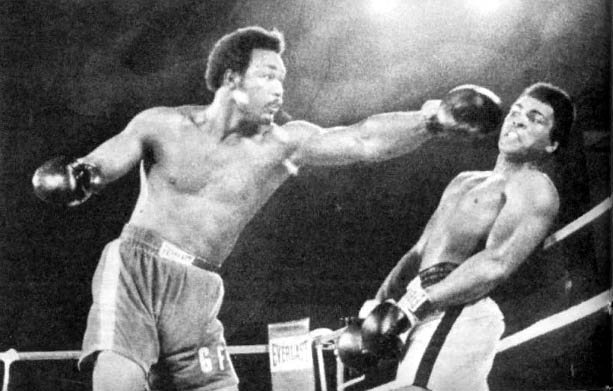
Remember that scene in the 1992 film A League of Their” Own where the grizzled manager of a woman’s baseball team during World War II, Jimmy Dugan, has a moment with one of his players, Mae Mordabito, during an intense moment in the game.
That manager is Tom Hanks, and the emotional player is Bitty Schram:
So, let’s go on the record right here and now:
There’s no “quiet quitting” in radio.
In just the past few weeks, the term has taken off, showing up just about everywhere where work from home and work-life balance issues are being discussed.
Every year, Merriam-Webster – the dictionary people – run a word search to determine “the word of the year.” You won’t be surprised to learn that in 2020, the word was “pandemic.” Last year, it was “vaccine.”
And for 2022? It just might end up being “quiet quitting,” a new phrase that’s taken on major significance in our changing workplace. I’ve seen a number of different definitions for the term.
LinkedIn career guru, Blair Heitmann looks at it this way:
“For many, it’s a way to achieve better work-life balance, and is the latest move away from hustle culture. It could mean seeking some more appropriate boundaries at work, like leaving work on time every day, or it could mean saying no to projects outside your job description, or outright refusing to answer emails and team messages outside of working hours.”
“Hustle culture?” That describes pretty much every one of the literally hundreds and hundreds of radio stations I’ve had the pleasure walking into since the start of my career back in 1970s radio.
In a new Lifehacker article by Brianne Hogan, we learn there’s another side of “quiet quitting” – when you’re no longer motivated by your job or you’re simply unhappy at work.
Is “quiet quitting” a new condition, spurred by the Great Resignation (another popular 2022 term) or have employees been doing a version of on-the-job sandbagging for centuries. How many among us have simply played out the weeks and months of a miserable job while they “quietly” look for something better.
But is the so-called “work-life balance” the real deal? Many experts call it an unattainable goal that only serves to frustrate workers and their bosses. In fact, Entrepreneur lists 10 myths about the concept, suggesting there’s no such thing as a balance between our work and home lives.
call it an unattainable goal that only serves to frustrate workers and their bosses. In fact, Entrepreneur lists 10 myths about the concept, suggesting there’s no such thing as a balance between our work and home lives.
They believe that attempting to segment your life by allotting a certain number of hours to the work and personal sides just doesn’t work.
Particularly in radio.
My first radio instructor, Jim Respress, started every one of his classes with a prophetic piece of advice about what it means to be a broadcaster:
“In radio, time is your biggest enemy.”
I can’t tell you how many times his words have reverberated in my head over these many years. And especially now, when time is of the essence in an industry where we can’t seem to move quickly enough to adapt and transform.
To gain understanding about what it all means to those who make their living behind the mic, we crafted a new question in AQ4, our survey of air talent. We asked our 750 on-air personalities and producers about how successful they’ve been at achieving a “work-life balance.”

Four in ten say equilibrium between their time at the station and their lives at home is important and they’re pulling it off. If that’s you, congratulations.
But a similar sized group would love a balance but say it just doesn’t happen. And the talent most apt to feel frustrated are women, Millennials, and those who wear a lot of “hats” – that is, are responsible for several jobs.
But then there are my favorite people – the 11% who say “It’s radio – there is no work-life balance.” They’re the realists – the ones who just know this new workplace condition – “quiet quitting” – has nothing to do with their lives.
As the industry knuckles down for another round of layoffs and RIFs, more and more radio professionals are likely going to have that conversation with “the man (or woman) in the glass.” Those introspective moments are important at any stage of your career, but perhaps even more these days. In our post-pandemic world, many of us have some thinking to do about what we really want and what we’re willing to endure in order to achieve it.
I seriously empathize with anyone in the business who no longer has the stomach for it, or who feels like they signed up for a different radio industry.

But I would also hope that if that describes you, and you’re “quiet quitting” while you plot out your next move, you speed it up. At this key moment for the radio broadcasting industry we need everyone to be “all in” for radio – whether you’re on the air, selling ads, or in the corporate suite.
If you’re playing a game of “rope-a-dope” with your station while you wait out the rest of the year, maybe it’s time to move over, Rover, and let someone new who’s motivated and amped up take over.
Apparently, no one subscribes to the Johnny Paycheck School of Broadcasting anymore. That was when you clearly suggested what your GM could do with his or her job.
Taking up space while you’re looking for “what’s next” may indeed by in vogue. But speaking for those putting in overtime as they try to do their level best to keep their stations on the air and in the black, move over and let someone have your job who’s not debating their life or career trajectory at the moment.
“Quiet quitting” may end up being this year’s most looked up term when all is said and done during the December holidays. But for the radio business, there’s nothing the least bit fashionable about it. There’s nothing “quiet” about radio. And a key reason many fell in love with radio way back when is radio’s exuberant, over-the-top, in-your-face attitude.
There’s no “quiet quitting” in radio.
Our free AQ4 webinar is set for Thursday, September 8 at 2pm ET. I’ll give you the rundown on all the big takeaways from our exclusive survey of commercial radio air talent in the U.S. Register here.
Note: The original post misidentified the crying player in A League of Their Own as Madonna. As it now appears in this corrected version, the actress is Bitty Schram. Thanks to the eagle-eyed Paul Harris for the correction. – FJ
- Let’s Watch A Podcast! - March 5, 2025
- Happy Birthday To You(Tube)! - March 4, 2025
- The Digital Dash In 2025: Now You See It - March 3, 2025




Let’s stop using the term “quiet quitting” to describe this phenomenon. It was coined by people who have no concept of what people are really asking for. It’s about compensation as much as it is about balance. And let’s face it, Fred; radio is notoriously lousy on the compensation front.
You could have called me a “quiet quitter” about thirteen years ago. The Great Recession had taken its toll on our station and my position was cut from full-time to half-time and, to add insult to injury, everyone’s pay was cut by three percent. It was demoralizing and it was at that point that I had decided not to give more to the station than they were willing to give me. I did not feel that I was a valued part of the team.
Over time, all of that has improved. Our station is in much better financial shape. I regained my enthusiasm for working at the station. But I had to advocate for myself along the way.
I deeply care about the mission of the station I am working for, don’t get me wrong. If something goes down overnight, on the weekends, or holidays, I’m plenty happy to step up. But I insist on being compensated for it, because I can’t afford not to be in today’s economy. Nobody can.
The statement, “There are no quiet quitters in radio” does nothing but enable bad managers to take advantage of their employees and workaholics to further alienate themselves from their families and end up killing themselves from overwork in the process.
I appreciate your point, Tony, as well as this honest comment. My intent was not to give managers permission to abuse their most committed employees. My point was that if a strong work-life balance is your goal, this may not be the profession to pursue. I am happy for you, that you have regained your mojo as well as fair compensation for your work. And we are in total lock-step that radio’s line workers need to stand up for themselves. (But hasn’t it always been this way?) Thanks for contributing today.
Thank you for the reply, Fred. Looking forward to your presentation at PRPD on Thursday.
Thanks – please say hi.
I really appreciate your comments, Tony, and your reply as well, Fred. I was blessed to work for the finest of employers throughout my career. I always felt appreciated and fairly compensated for my contributions at every stop along the way. But I know not everyone is as fortunate. There really are some bad apples out there that force you to make the kinds of decisions you did, Tony. Decisions, I’m sure, you’d rather have not had to make. I’m glad it all worked out for you. Clearly you made the right call, and hopefully your experience will serve as a reminder that we’re all in this together–regardless of which side of the microphone you’re on.
Thanks again Fred. I had a much better morning show today.
And please send a box of Kleen -ex.
Done and done.
I usually don’t post but feel compelled to do so now. There are a few other sayings that have made the rounds over the years (not the last few weeks) that resonate as well – Like: “There is no finish line”, or “The harder I work the luckier I get”.
As we all know – radio is no longer just about radio. Its also about events, concerts, recruitment fairs, festivals, social media campaigns, digital advertising, website development, the occasional car dealer remote on a Saturday, and more. But mainly our industry is about serving our communities and helping businesses grow. Hardly a “9-5” business. Thankfully, those that enter our fantastic industry know this from the start. And thankfully they are eager to contribute (and over contribute) whenever possible… all while still managing to find a work-life balance. We could interview countless colleagues who have reached great career successes and wonderful work-life-balances over the years, after having gotten their start IN RADIO. I would bet that each and every one of those people would say they did not watch the clock for that quitting bell to ring, yours truly included.
I sometimes hold back commenting because I fear I’ll come across as “just another old guy who worked in a very different kind of radio a long time ago.” Guilty on all counts. But I will say that for me–and almost everyone I knew–the idea of separating “work” from “life” was unthinkable. Radio was as much a part of you as all other aspects of your life. It was your identity. And you wouldn’t want it any other way. I can’t help but wonder if those “11 percenters,” which I proudly count myself among, aren’t the happiest, most satisfied people in the industry.
“Quite Quitting” – is this something new. or is it just a new name for an aged-old issue? Has it had many other names in the past – slacking, quitting, coasting, mailing it in? This seems, to me, and to an article written by Mitch Albom last weekend, just another term of those that are not committed to their job, profession or company – no matter the reason.
I am another of those “old guys” that has worked in radio when it was a different time and a different day; I got into the business because I loved radio, period. However, I have millennial and Gen Z employees that love this business and do what they do because they love it. It is a very part of their being. And, as we all have, we are doing this because of our passion to create.
Work/Home balance is important … however, it can be done if your commitment is to both.
In Mitch Albom’s article he makes this observation – those that are not “quite quitters” are small business owners – It is those hard working folks have the same issue as those of us that do not own our stations, yet take the responsibility that has been given us – finding the committed employees with enough passion to give it their all. There cannot be “quite quitting” in radio – It’s in the nature of the beast – we are a 24/7/365 industry.
And, I agree with David, those of us “11 percenters” may be the happiest of all.
Thank you Fred for all of your thought provoking articles.
As someone who recently resigned from radio (PD/Ops of 5 stations to be clear), I fully agree there is no perfect work/life balance to this. Love the industry, was never mad about my pay, enjoyed my work family, but I love MY family more. I simply got to the point where I didn’t want to be on call 24/7 anymore and didn’t want to put my family second anymore. I do think there is a generational issue to this in that millennials and Gen Z are much less likely to just put up with the extra hours for no pay or no true time off. If you want to call that lazy, that’s your choice. In some cases I would argue it’s is laziness, but that could be said for all generations. In other cases, I think radio is good at finding the people who can “do it all” and just flat out burning them out. My advice to managers and owners would be this: do better to balance the work/life issue for your employees. It might require you to set aside cash for part time people to give others a breather. Compensate people for weekends, etc. You can serve your community and also not burn people out. If you don’t figure this out, you will only continue to find less and less quality people willing to work in this great industry.
Jason, thanks for this slice of truth. And your advice to management is spot-on. Management/ownership can no longer take for granted there are people willing to spend 60 hour weeks (with no overtime!) to fulfill remotes, program an extra set of logs, or voicetrack another daypart.
No “quiet quittings” in my history. Several “loud firings,” though! I always like Keith Olbermann’s description of several of his departures: “I didn’t just burn the bridge, I nuked it!”
Brad, in that regard, you may be a more typical radio guy than you think. Good hearing from you.
Late to the party here, but there’s an argument that radio’s top brass are the quiet quitters here. Fred, you referenced more RIFs – is there a lazier or easier way to address problems than just reacting to every one by firing people? Imagine what radio would be if all of those all in people with little work/life balance applied that level of problem solving to each challenge they faced?
There are other ways to react to economic curveballs than pink slips. It might be time for some head honchos in radio to call their spouses and tell them they’ll be late for dinner because they have pressing issues at work that demand more time.
Thanks for this, Bob. I featured your comment in today’s post.
Piling on here. I feel like a person either “loves media” or they don’t. And if you do, you’re pretty much “on” most of the time. I remember starting in the biz and literally saying to friends, “I just can’t watch TV or listen to radio in the same way ever again. I’m always thinking about the quality of it, the new advertisers, the crappy hosts, etc.” And to me that was the fun part, the cutting edge. I never lost that. Don’t get me wrong there are low points in everyone’s career, and life priorities need to be set. But quiet quitting? LOL. They must be kidding. As has been mentioned numerous times….that’s a signal it’s time to move on. Instead I fear that the panacea is unionizing.
Exactly, Tim. You might enjoy the “Can Radio PDs Program Anything? post, too. It speaks ot the same inherent basics. Thanks for chiming in on this.